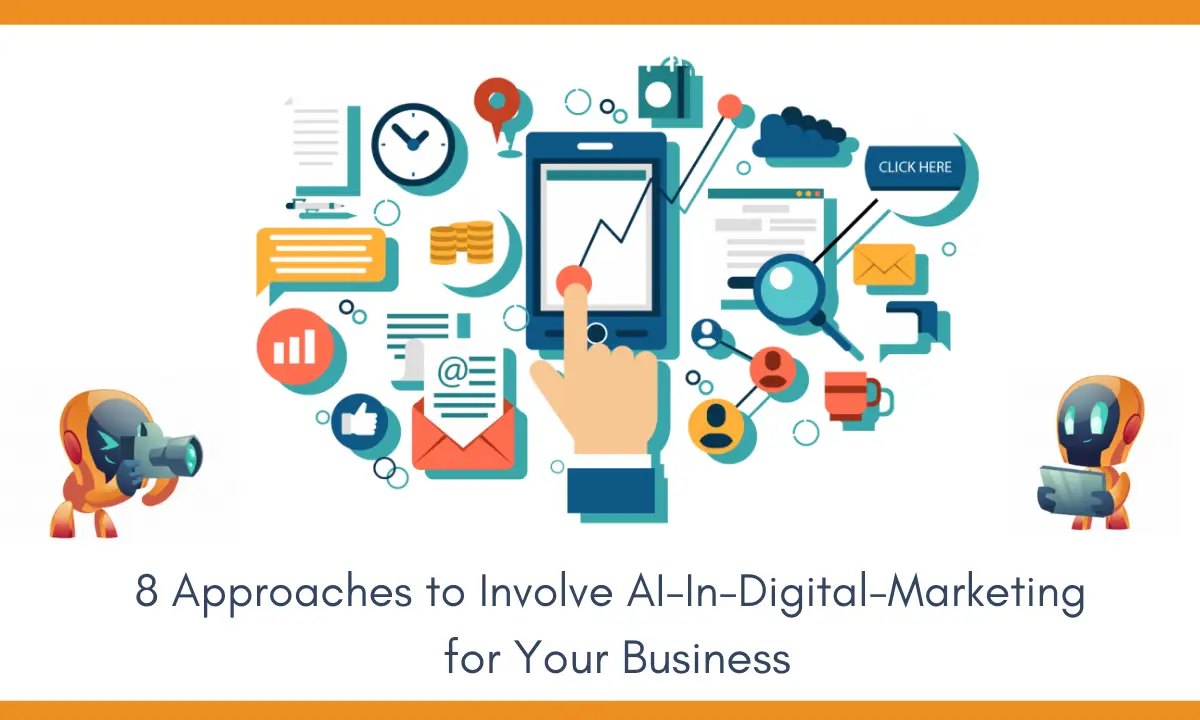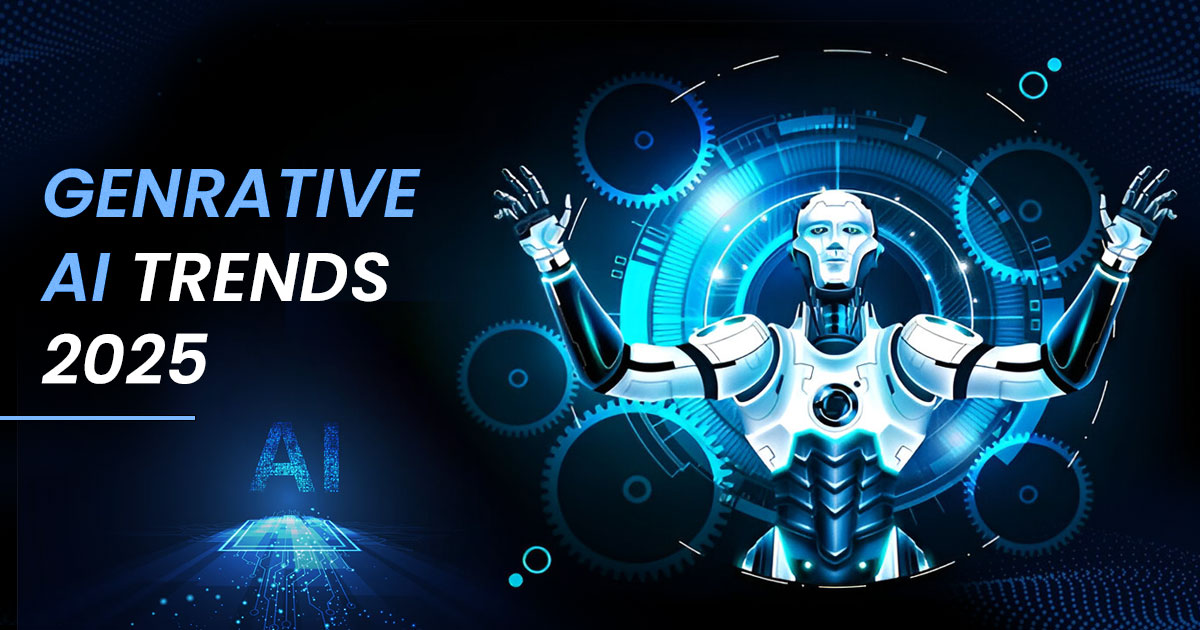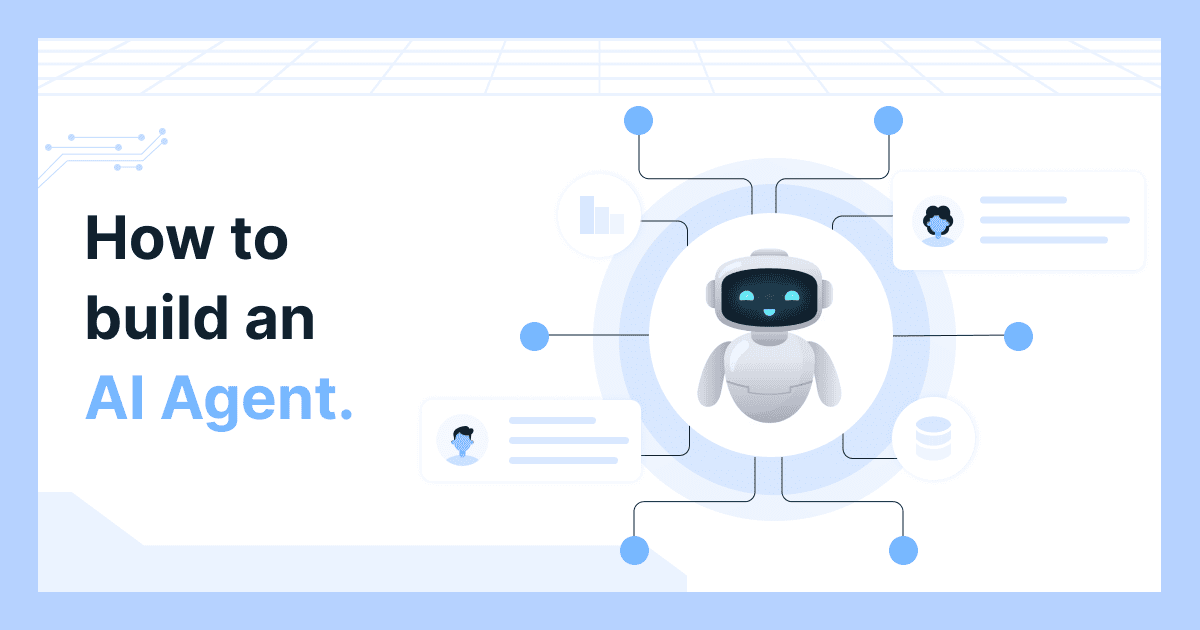Considering the recent happenings, AI and Digital Marketing have become trending topics these days.
A few marketing innovations have completely stunned the global audience.
One of those few prominent innovations is “Artificial Intelligence”.
Since its introduction in the 1950s, AI has traveled a long journey. With advancements at so magnificent rates, it has completely transformed the operation of businesses in the 21st century. The organizations have realized that to serve the segmented audience; it’s necessary to interact with them both through online means (digital media) and offline means.
Since most of the population is active on digital platforms, it’s reasonable to provide them with relevant, precise information through the channels they prefer and utilize the most. Nowadays, companies are more customer-centric, and to get in-depth insights into their potential prospects, AI plays a significant role in it.
The prosperity of AI is directly proportional to the great possibilities of valuable customer understanding, which will in turn create efficient and effective strategies. AI has the potential to elevate conversion rates, speed up marketing campaigns, and provide customers with a flawless end-to-end experience.
With this blog, I’ll accentuate how AI and Digital Marketing are interrelated and what AI-driven strategies should be undertaken by various businesses to establish their place in this competitive market.
Let’s get familiar with the basics first:-
What is Artificial Intelligence that Has Dominated the Whole World Right Now?
In layman’s terms, AI guides the machines to think, make accurate decisions in no time, and perform assigned tasks with greater efficiency.
Why Has AI Become The Topic of Hot Discussion These Days?
- It has become a prominent part of our everyday lives.
- It accounts for precision and accuracy.
- It performs a deep analysis of available data to provide valuable insights.
- It can add as a function of various devices with the help of its super-efficient algorithms. A few examples are- GPS trackers, voice assistants, etc.
- It makes the communication more engaging and personalized.
Today’s world revolves around data, there is endless information available, but that information can only be productive if one can extract valuable observations from it. Here AI plays its role. It analyses the data with accuracy and aids various sectors to flourish like medicine, banking, and marketing have been inclined towards incorporating AI in their operations.
Now let’s cover another important topic of our discussion – ‘Digital Marketing.’
What is Digital Marketing?
In simple terms, it means making people aware through digital media of the variety of products and services in the market.
In this era, almost everyone has an online presence, so what’s better than their favorite platform to make them aware of various products and services?
Now that we have understood the basics, it’s time to shed some light on our main topic.
Are These Two Interrelated?
Going back a few years, marketers were reluctant to employ AI in their strategic decisions and were unaware of its immense possibilities, but according to the recent trends and updates in the market, they are compelled to merge AI and digital marketing. It’s crystal clear that AI will become a major component of digital marketing as it has overpowered humans in identifying the constantly changing market trends.
Brands like Spotify, and Amazon are successfully leveraging AI in Digital Marketing to reach their customers. Just for instance, based on the previous searches, Amazon showcases the relevant products to the customers avoiding the time loss looking at unrelated products; this eventually prompts the prospect to come down the funnel, make a purchase, or become a repeated customer.
AI has become integrated with digital marketing and offers unlimited benefits and choices to customers. The benefits it offers go beyond the human’s imagination.
Leveraging AI in digital marketing can help you make a strong market presence.
The impact of artificial intelligence on digital marketing has been great due to the following reasons:-
- Ai helps you get deeper insights into your audience’s behaviors based on their past purchasing patterns.
- It helps to deliver a highly personalized message.
- Ai can process a huge chunk of data in just seconds and make accurate suggestions based on the existing patterns.
- It enables you to get rid of all the guesswork.
- It automates several repeated tasks hence reducing the loss of time, energy, and money.
Union of The Two –
This union has revolutionized the whole scenario. How data is processed and analyzed in no time has been very advantageous for companies to get to know their customers better, which part of their customer journey, and what their preferences are. Businesses use AI primarily in two ways:-
- In the front-end: Marketers utilize AI to improve the customer experience.
- In the back-end: Marketers use AI to analyze patterns, predict the demands of products or services, build a buyer persona, etc.
Ways to Incorporate AI in Digital Marketing
Of late, AI has been dominating almost every sector and has generated successful results.
With its amazing algorithms, AI has been aiding marketers to interact with their audience through the means of digital media efficiently.
Here we have explained the 8 ways in which you can add artificial intelligence in digital marketing.
1. Personalized Suggestions
People now have become more aware of what they need, and it is the marketers’ responsibility to deliver the relevant information to them. AI in digital marketing has enabled marketers to connect and interact with their leads, prospects, and customers in a more personalized way as the way consumers are responding to the campaigns is changing rapidly.
Traditional methods like direct mail, media advertising, etc., are not very effective nowadays as people want tailored responses from companies regarding their location, preferences, interests, etc.
It has come to the limelight that people switch brands whenever they feel they are getting non-personalized messages due to a lack of trust. Customers will likely enter the next stage of the journey if they are being provided personalized messages.
Emails play a significant role in this; it has been observed that emails with personalized and interactive subject lines have more open rates as compared to those that don’t.
In the past, marketers solely considered generic target groups, but now with AI, they can target people based on individual insights. Companies like Amazon, and Netflix provide recommendations to users based on their previous watches. These recommendations have been becoming more targeted and sophisticated.
2. Analyze and Predict the Trends in Customer Behaviors
The future of AI in sales, marketing, and customer service is promising due to its ability to recognize existing possible trends. Marketing is all about giving customers what they want. This data can be easily extracted and put to use by AI. AI plays a significant role to understand customers’ needs properly and to make precise suggestions,
With intelligent software, one can deliver the right message to the right person at the right time. By careful evaluation, AI can identify the important leads to be focused on leaving behind those who don’t show any interest and aren’t ready to make a purchase. This accelerates the whole marketing strategy and eliminates loss of time, energy, and money.
3. Big Volume Data Processing
Today, we have access to infinite data, and this data needs processing to be beneficial. Before machines, humans dealt with data, and it’s likely to make mistakes while dealing with such a humongous amount of data.
Hence to make this process more efficient and accurate, technologies came into the picture, and with the help of highly intelligent software, they can get access to, scan, and process data with utmost efficiency without any sort of inaccuracy.
Companies are overwhelmed by the sheer amount of data they are receiving at their end, therefore to lessen the load AI excels at understanding and processing huge amounts of data to identify trends and patterns from it.
With their advanced software, AI can differentiate the old content as well as the duplicate one. Thus, it becomes easy to deal with a large amount of data simultaneously.
This sorted data is then used to satisfy the curiosity of the segmented audience. Providing users with the relevant content they search for is the main goal of a successful digital marketing strategy.
4. Employing Chatbots
The application of artificial intelligence in digital marketing is endless. One such application is the ‘Chatbots’. These have been a breakthrough by reducing dependence on the traditional one-to-one communication and shifting the focus to one-to-many conversations. This form of streamlined communication helps to interact with multiple customers in different time zones simultaneously.
Unlike humans, they don’t need time off; they work 24/7 and answer the customers’ queries in real-time. Leveraging chatbots is cost-efficient and time-efficient.
Along with these benefits, customers can select the respective languages in which they want the chatbot to interact. Brands like WhatsApp, Messenger, and Slack have employed chatbots to have interactive conversations with their customers through their messengers.
Just have a look at the top Robotics companies in the world –
5. AI-Powered Emails
Email marketing is an important concept of inbound marketing. To increase CTR, it’s necessary to send personalized email, but it’s cumbersome to send one to every prospect on the list of thousands, You can hire professional email template design services to create visually perfect templates.
Here it becomes a necessity to merge ai in digital marketing for the successful performance of the email campaigns. Here, AI plays the dice with its automation software, it can send repeated emails to thousands of users simultaneously.
In the case of performing repetitive tasks, AI takes the lead. By assigning these repetitive tasks to the marketing software, you can increase your efficiency by developing strategic marketing campaigns and other such areas where human contact is essential.
AI-powered marketing automation consists of personalizing customer experiences, making communications with customers more interactive, making contact with leads at the right time, etc.
6. Optimized PPC Ads
The incorporation of digital marketing and ai has given rise to PPC Ads which are very essential to market your products to a specific group of people.
Earlier, to optimize marketing messages and display ads, marketers used to do A/B testing, but it’s a cumbersome and time-consuming procedure to numerous variables. Due to the emergence of AI algorithms, marketers can easily and frequently optimize marketing messages and ads.
The customer journey’s initial step begins when the users realize that they are interested in a particular thing or have queries about a specific thing. The holy grail is when we provide then this relevant information at the right stage of their journey.
Various social media platforms use AI ad optimization to enhance advertising effectiveness. For example, Instagram identifies user interests by analyzing the accounts they follow, and as a result, it displays ads that are most relevant to their preferences.
Similarly, Google Ads Manager employs sophisticated AI algorithms to fine-tune ad targeting and improve relevance. This strategic use of AI on both Instagram and Google Ads Manager leads to a more personalized user experience and ultimately results in a significant increase in ROI, as users are presented with content that aligns closely with their interests and needs.
7. Improvizing the Content
AI helps in improving the content which goes on the website. Blogs are the most significant part of content creation. It has been found that 77% of users are indulged in reading blog posts. Hence, it is essential to create informative blogs that answer the questions of the users.
Marketers are now aware that before availing of services or making purchases, users go to the blog section of any company’s website to seek answers; if he is impressed by the content available there, he goes down the funnel and completes the call to action.
Here comes the difficult part: on which topic should the blog be written to capture the audience’s attention? AI solves this dilemma, and it can brainstorm thousands of blog topics in just a matter of seconds based on search number volumes and other relevant factors making life easier for the ones involved in content creation.
8. Image Recognition Technology
One of the biggest advantages of AI is image recognition technology. It has been around for quite some time and has made user’s end-to-end experience more seamless and streamlined.
This technology recognizes images, faces, expressions, actions with the help of various algorithms and is very favorable for marketing aspects in the future.
Taking the example of Facebook, you must have noticed whenever you upload a picture of yourself with your friend; there comes an option to tag your friend in the picture; this is the magic of image recognition technology.
It also plays an important role in the image search query. One can easily search for something by simply dropping the image in the Google images section. The search results will display all the contents that are similar to your search query.
Wrapping Up
It’s right to say that Artificial Intelligence and Digital Marketing have become two sides of the same coin. A good marketer must know how to involve both of these together. If you’re still not incorporating digital marketing and ai, you are obviously behind your competitors. It might seem intimidating to use such advanced AI tools, but marketing software makes it easy to deal with. Make the best use of both these amazing privileges. It will surely yield wonderful results.







